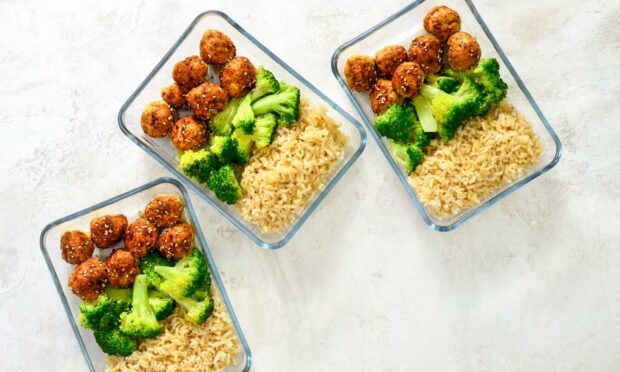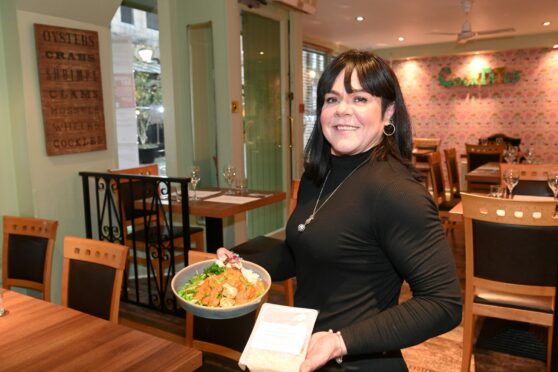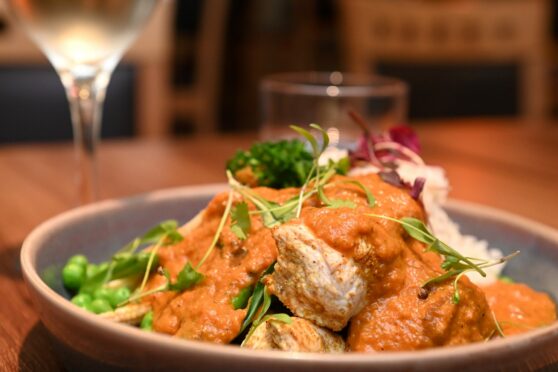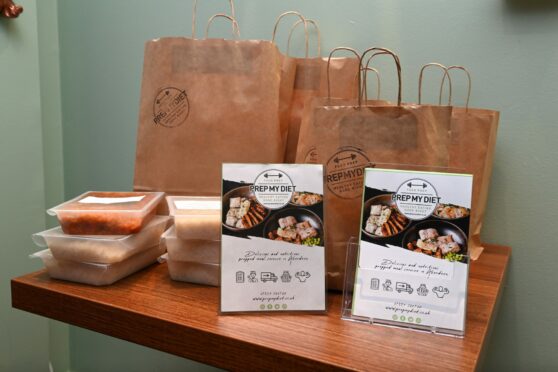The ins and outs of batch cooking and freezing remain a mystery to some.
What are the best dishes to create in bulk? Which foods should I avoid freezing? Are there more cons than pros to cooking and freezing in bulk?
The questions are endless. But Lisa Kelbie, owner of Aberdeen’s Bistro Verde, has the answers.
Explaining that she has always enjoyed going to the gym, healthy eating and studying nutrition, Lisa launched her own food delivery service, known as Prep My Diet, in March 2019.
The business offers clients diet plans, nutritional advice and support, as well as calorie counted meals delivered straight to their door.
These meals include chipotle chicken skewers with vegetable cous cous and mini corns, Jamaican chicken curry with rice and greens, sweet chilli beef with teriyaki noodles and garlic broccoli, herby chicken with baby potatoes and greens, and more.
Given her in-depth expertise on the topic, Lisa has shared her top tips on all you need to know about batch cooking and freezing.
Bulk freezing
Lisa says that while most foods can be frozen, she recommends bread, fruit, stews and soups above all.
On the other hand, noodles, vegetables, rice or fried foods should be avoided.
“Food with a lot of water or fried foods tend to go a little mushy when defrosted,” she added.
“If you don’t freeze, defrost and reheat any food correctly then you are at risk of harmful bacteria being present in the food.
“As a general rule, you would never freeze and reheat high risk foods such as shellfish or certain dairy products. Again, and in very simplistic terms, this is due to harmful bacteria being able to multiply very quickly in certain foods.
“However bread, fruit, stews and soups all defrost well and by freezing fruit and bread you save waste if you aren’t going to use it before it spoils.
The do’s and don’ts
According to Lisa, a benefit of bulk freezing includes having a supply of homecooked meals while the main challenge is storage.
She also said a common misconception among people is that it can prove difficult to remember when to defrost meals, however, that the routine is quick and easy to build.
When it comes to bulk freezing:
Do:
- Label and date containers
- Use good quality airtight containers/bags
- Get as much air out of bags as possible
- Store neatly
- Seal containers properly
Don’t:
- Refreeze food once it has been defrosted
- Forget what you have made – this is where good labelling comes into play
- Freeze hot food
- Forget to rotate food – make sure you are rotating new dishes with ones you have made in previous weeks
Batch cooking
Batch cooking is a great way to cut down time in the kitchen and means you can always have homemade meals to hand, providing you have given yourself the time to cook the dishes in the first place.
It is convenient and suits those who lead a busy life.
And batch cooking doesn’t just mean you have to individually store dishes as they can be stored in bulk which is especially useful for those with big families, too.
Not only that, Lisa says it is ideal for when you aren’t in the mood for cooking or are pushed for time as you can just grab something quickly.
She admits that it can also save you money as you aren’t spending it on takeaways or grabbing unhealthy convenience foods as much, and it helps cut down food waste, too.
It can also support the local economy if you shop locally.
Like bulk freezing, storage can be an issue. But Lisa adds that the benefits outweigh the negatives.
“People think that it’s hard work, confusing and very time-consuming, but it isn’t.
“Above all, curries, chilli, stews and soups are all ideal for bulk cooking.”
The do’s and don’ts
When it comes to bulk cooking:
Do:
- Measure ingredients correctly
- Weigh after cooking to ensure correct portion size
- Consider the temperature – if you are reheating dishes and want to add toppings like cheese and cream etc. then be sure to not add them into the dish while batch cooking
- If cooking rice for two, separate the dishes and cook it all together
- Have patience
Don’t:
- Get too ambitious too fast – best try the recipe first before attempting a large batch
- Don’t forget to properly adjust weights and times
- Be sure to cook an amount that you can store
- Don’t batch cook food until you are sure you enjoy that particular dish



